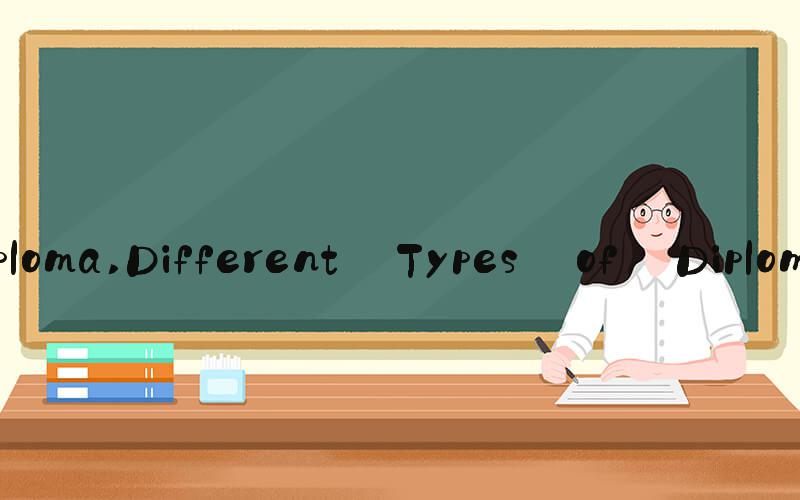
 What is a Diploma?
What is a Diploma?A diploma is an academic qualification awarded by educational institutions, such as high schools, universities or colleges, to students who complete a specific course of study in a particular subject or field of knowledge. It is usually a certificate or document that confirms that a student has successfully completed a program of study and has met all the required academic standards for that program.
Different Types of DiplomasThere are many different types of diplomas, depending on the level of education and the field of study. For example:
High School Diploma
Associate Degree
Bachelor's Degree
Master's Degree
Doctoral Degree
Each level of education builds upon the previous level and provides students with a deeper level of knowledge and understanding of their chosen field of study.
The Importance of DiplomasDiplomas are important for several reasons. For students, a diploma is a confirmation of their hard work and academic achievements. It is also a necessary requirement for many jobs and further educational opportunities. Diplomas demonstrate to employers that graduates have the necessary skills and knowledge to perform a specific job or role.
Furthermore, diplomas also allow students to demonstrate their dedication and commitment to their field of study. By earning a diploma, students show that they have taken the time to learn and develop skills that will help them succeed in their future careers.
Diplomas and Career OpportunitiesDiplomas often play a critical role in career opportunities. Many employers require applicants to possess a diploma in a related field before they can be considered for a job. Without a diploma, it can be challenging to find work in a particular field.
Additionally, having a diploma can also allow students to pursue additional academic opportunities, such as graduate school or specialized training programs. These programs can provide students with additional skills and knowledge that can help them advance their careers.
Challenges with DiplomasWhile diplomas are an important part of the education and career process, they can pose challenges for some students. For example, not every student is able to complete a diploma program due to financial, personal, or academic issues.
Furthermore, diplomas are not always able to fully prepare students for the challenges and demands of their chosen careers. Real-life experiences and on-the-job training can provide valuable skills and knowledge that diplomas may not be able to offer.
ConclusionIn summary, diplomas are an essential part of the education and career process, providing students with the necessary skills and knowledge to succeed in their chosen careers. While not without challenges, diplomas represent a significant accomplishment for graduates and demonstrate their dedication and commitment to their field of study.
